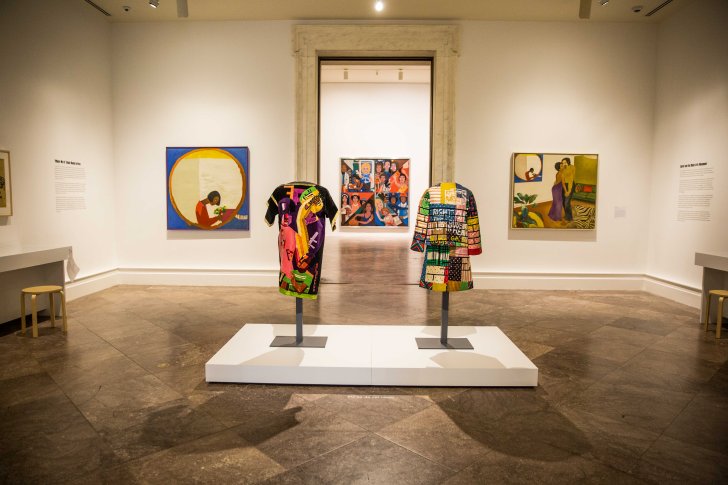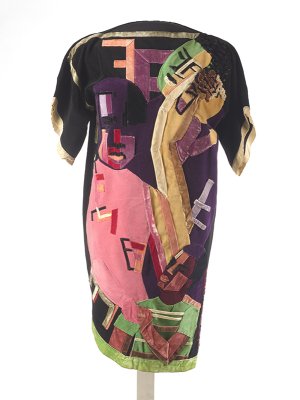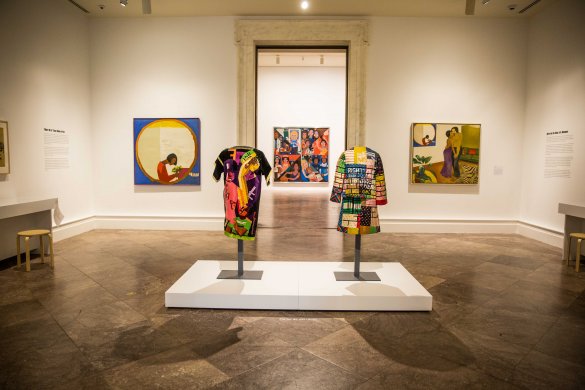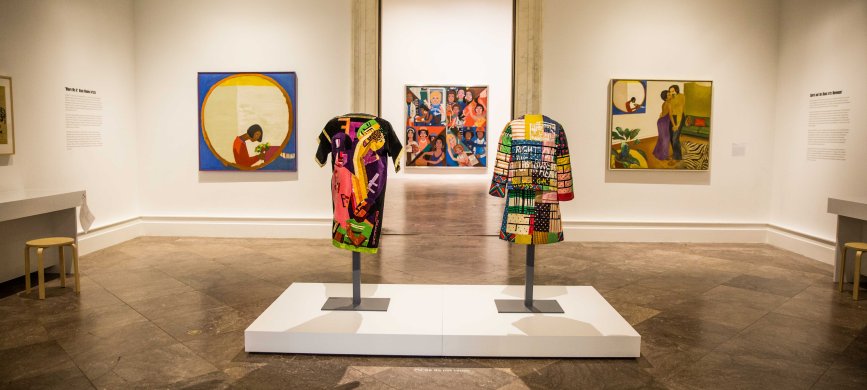With the emergence of the Black Power Movement in the mid-1960s, new political strategies and cultural agendas developed. A loose confederation of artists, writers, musicians, and dancers came together as the Black Arts Movement to celebrate black history and culture. Rather than seeking to influence elite cultural communities—a priority of some earlier generations of black artists—members oriented their work toward a more popular audience.
Emerging in New York City, the Black Arts Movement quickly spread to other urban centers, putting down strong roots in Chicago, where AfriCOBRA (African Commune of Bad Relevant Artists) and other related groups grew. Committed to a socially responsible and community-oriented art, they promoted black pride by developing an identifiable aesthetic inspired by African cultures.
As one of the co-founders of AfriCOBRA, fashion designer Jae Jarrell made one-of-a-kind, brightly colored clothing. The collective called these hues “Coolade” colors, a wordplay on the popular children’s beverage. Jarrell’s vibrant garments celebrate black families and culture and were worn by the artist in her daily life. She wrote that her Ebony Family dress “always got good vibes from our [AfriCOBRA] members, no doubt, because my political stance on nurturing the strong loving Black family is real and personally experienced. We regarded the members as extended family.”



